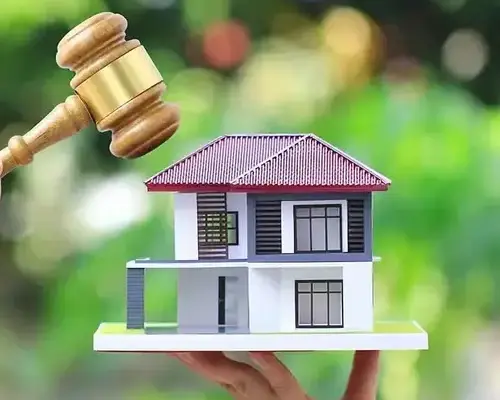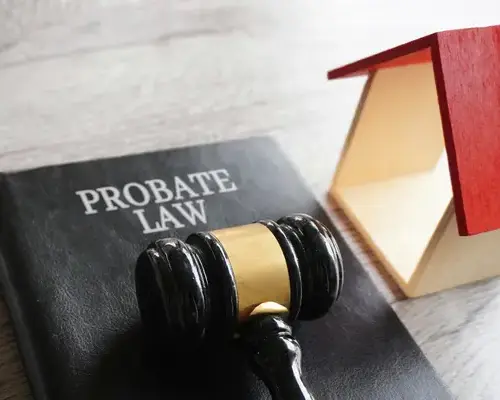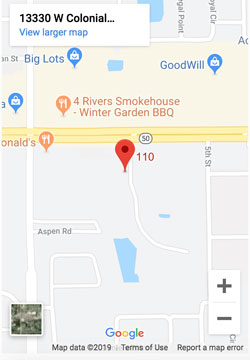Evictions Lawyers Representing Landlords in Orlando, Florida
Legal Counsel, P.A. employs evictions lawyers representing landlords in Orlando, Florida. If your tenant in Florida is not paying rent or is in violation of a valid rental agreement, landlords have the right to deliver an eviction notice and can take steps to remove a tenant from their property. However, tenants have important rights in Florida when it comes to evictions. For example, tenants must receive formal notice of non-payment of rent and the tenant has three days to pay the rent or to leave the premises. Rent payment is either made on the first of the month or is made on a date agreed to by both parties in the rental agreement. When rent isn’t paid, the landlord can either demand rent payment or demand that the tenant must vacate the premises. The notice of non-payment must be in writing and the wording must be specific in its demands. Furthermore, the notice must be properly served to the tenant. Either the notice can be personally served, delivered by U.S. Mail, or placed on the front door of the rental unit or other clear and obvious location. While landlords might be able to acquire notices online, it is important to understand that landlord tenant law in Florida is constantly evolving. In order to best protect your rights as a landlord, it is often in your best interests to have your notices reviewed by a lawyer first. Legal Counsel, P.A. employs evictions lawyers for landlords in Orlando, Florida who can help you understand your rights when it comes to evictions and assist you with taking steps to have your rent paid or the eviction process completed in a legal manner. Have questions? We have answers. Contact Legal Counsel, P.A. at 407-982-4321.
Legal Reasons for Evictions in Orlando, Florida
There are several legal reasons why a landlord might be able to evict a tenant in Orlando, Florida. For each of these reasons, there is a specific legal process a landlord must follow. Here are some legal reasons why a landlord may be able to evict a tenant in Florida:
- Non-Payment of Rent.
- Non-Compliance of Rental Agreement. The rental agreement must be valid and signed by the tenant.
There are other situations where a landlord can legally ask a tenant to leave his or her property. If your tenant is paying rent month to month, you must inform your tenant at least 15 days before the month is up that you do not plan to renew and that the tenant needs to vacate the premises. If your tenant is on a formal lease, you must provide your tenant the same amount of notice that you don’t plan to renew that you would require from the tenant were the tenant to choose to move at the end of the lease term. If you need to evict a tenant, it is important to follow proper legal processes. Failing to do so can expose landlords to lawsuits. Legal Counsel, P.A. employs Orlando evictions lawyers representing landlords in Florida. Our firm can help you with any of your eviction needs. Have questions? We have answers. Contact Legal Counsel, P.A. at 407-982-4321.
What is the Eviction Process in Florida?
In order to evict a tenant in Florida, landlords must follow a formal process. There are several steps a landlord must take before an eviction can take place. Furthermore, there are situations that can complicate the eviction process. Here are some steps you may need to take as a landlord to evict a tenant:
- Serve formal notice to the tenant. The tenant must be informed that he or she is in debt to the landlord for the rent amount due. The landlord must also formally inform the tenant in writing that if rent isn’t paid, that the tenant must vacate the premises in three days or pay the rent amount due.
- Eviction paperwork must be filed in court in the county where the property is located.
- Tenants must be formally served eviction paperwork. A process server or sheriff may need to formally serve the tenants the paperwork to ensure that the tenants receive the documents.
- The landlord must wait five days, giving the tenant time to either pay the rent due to the court, or to respond to the summons.
- If the tenant contests the eviction, a hearing may take place, during which the tenant might be able to dispute that the rent is owed.
- If the tenant doesn’t respond to the eviction summons, the sheriff or process server can deliver the tenant a writ of possession document ordering the tenant to vacate the property within 24 hours.
There are many ways that the eviction process can be complicated. For example, if a tenant has abandoned your property and has left items in the home, it might be wise to speak to the eviction lawyers at Legal Counsel, P.A. in Orlando, Florida to understand your rights when it comes to disposing of tenant’s property when tenants have abandoned a property or failed to pay rent. You cannot just rent out an apartment if a tenant abandons it and stops paying rent without going through the formal eviction process. Another way an eviction can get complicated is when a tenant disputes that rent wasn’t paid. If this happens during a hearing, the tenant has the burden of providing proof that rent was paid.
Landlords who evict tenants for non-payment of rent may have the right to keep the tenant’s security deposit to cover unpaid rent. However, this process must also be completed in a formal manner to avoid lawsuits or disputes. Legal Counsel, P.A. employs evictions lawyers in Orlando, Florida who can help you understand your rights when it comes to keeping security deposits during an eviction process.
The legal process of evicting a tenant can get complicated and it is important for landlords to follow the law. Legal Counsel, P.A. employs eviction lawyers in Orlando, Florida who offers eviction services to landlords. Non-payment of rent is just one reason why landlords may need to evict a tenant. Failure to follow the rules of a rental agreement is another. In this case, a landlord might need to provide documentation and proof that violations have occurred and may need to show the court a valid rental agreement stipulating the rules. Have questions? We have answers. Contact Legal Counsel, P.A. at 407-982-4321.














